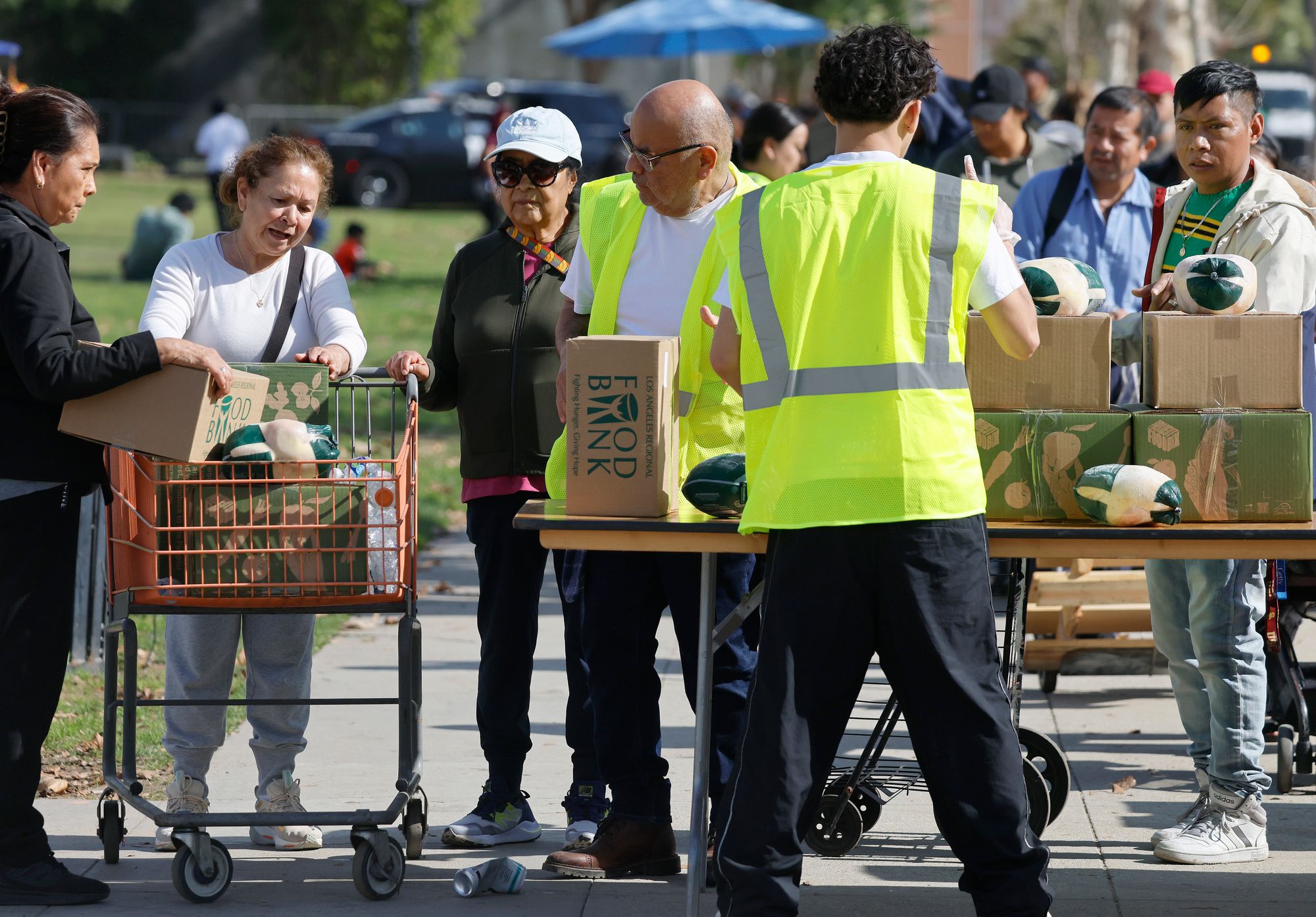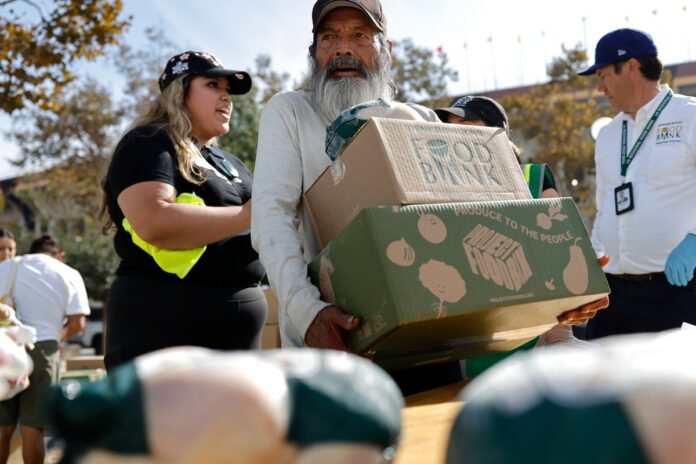Hunger exists everywhere in the U.S., thanks to increasing living costs, a lack of public infrastructure, health problems and socioeconomic barriers to access.
Nearly 50 million Americans face food insecurity on a daily basis, some 13 million of whom are children. And more than 50 million have turned to food banks and pantries for help, according to the non-profit Feeding America.
The longest government shutdown in history and new requirements for Supplemental Nutrition Assistance Program recipients could make matters worse, experts say.
“I think millions of people are going to lose food. … There’s no question this is going to create more harm and suffering and hunger,” Joel Berg, CEO of the nonprofit hunger relief organization Hunger Free America, told ABC News.
While food banks hope people will donate money and food to meet dire demand, some donations are better than others.
Perishable items
Food that needs refrigeration, leftovers and anything perishable is a big “no-no.”
Food banks won’t accept dairy or produce that can spoil easily and some places likely don’t have the refrigerator or freezer space needed to keep items fresh.
And while donating Thanksgiving leftovers seems like a nice gesture in the spirit of the holiday, food banks cannot accept anything made in personal kitchens because they are not individually sealed and the food bank cannot verify the ingredients or the preparation process.
The same goes for baked goods.
Fortunately, many food banks have relationships with local restaurants and bakeries to provide bread and produce to pantries, soup kitchens and shelters.
“While an individual can’t donate a bunch of bananas or a frozen turkey, many food banks do work directly with farmers, retailers, restaurants and other companies to source these perishable foods for donation,” Feeding America explained.
Consider canned items with high protein and low sodium, such as beans, nut butter, canned protein and low sodium vegetables.
Expired food
This may seem like a no-brainer, but sometimes we forget to check the label of canned goods that last for a while.
Avoid donating anything past the “use by” or “sell by” date on cans.
Home canned foods should be used within one year, according to the U.S. Department of Agriculture.
“High acid foods such as tomatoes and other fruit will keep their best quality up to 18 months; low acid foods such as meat and vegetables, two to five years,” the department notes.

Food with packaging concerns
Food with packaging concerns can be hazardous to both food bank workers and recipients.
Items in glass containers can shatter easily, causing concerns for any other food they’re store near.
And dented or bloated cans could lead to botulism, a rare but serious illness caused by the toxin Clostridium botulinum that can lead to difficulty breathing, muscle paralysis, and even death.
“While extremely rare, a toxin produced by Clostridium botulinum is the worst danger in canned goods. NEVER USE food from containers that show possible “botulism” warnings: leaking, bulging, or badly dented cans; cracked jars or jars with loose or bulging lids; canned food with a foul odor; or any container that spurts liquid when opening,” the Department of Agriculture says.
“Even a minuscule amount of botulinum toxin can be deadly.”
